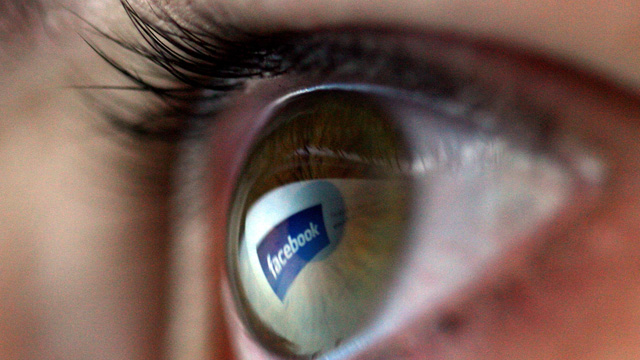
(Getty)
Many Facebook users got duped by the recent Talking Angela hoax. This fake rumor tried to convince parents that a popular children’s app was a danger to their kids. The rumor was later proven to be false.
Here’s a guide to recognizing potential Facebook hoaxes, in order to keep you from getting fooled in the future.
1. Look at the Language
There's been lots of chatter from parents about an app for children called "Talking Angela." Find out why today at 4. pic.twitter.com/wTSyiiGtr7
— WYMT (@WYMT) February 18, 2014
In their assessment of the Talking Angela hoax, Sophos Naked Security told readers that the language used in the hoax message was very telling.
“The use of ALL CAPS, the mis-spellings, the illiterate punctuation, and the almost casual inaccuracies – it talks about a ‘site’ in one sentence and an ‘app’ in the next – ought to have been enough to condemn this warning to the dustbin of history at once,” they advised.
Naked Security published part of the text of the Talking Angela hoax that was being circulated on Facebook, which you can read below. As you can see, the language seems a little bit suspect:
“WARNING FOR TO ALL PARENTS WITH CHILDREN THAT HAVE ANY ELECTRONIC DEVICES , EX : IPOD,TABLETS ETC …. THERE IS A SITE CALLED TALKING ANGELA , THIS SITE ASKS KIDS QUESTIONS LIKE : THERE NAMES , WHERE THEY GO TO SCHOOL AND ALSO TAKE PICTURES OF THEIR FACES BY PUSHING A HEART ON THE BOTTOM LEFT CORNER WITHOUT ANY NOTICES . PLEASE CHECK YOUR CHILDREN’S IPODS AND ALL TO MAKE SURE THEY DO NOT HAVE THIS APP !!! PLEASE PASS THIS MESSAGE ON TO YOUR FRIENDS AND FAMILY MEMBERS THAT HAVE KIDS !!!!”
2. Look For a Source
As the Bloomberg video above shows, social networking hoaxes are often perpetrated as an attempt to build buzz about a company.
While even the most reputable news outlets can make a mistake, Facebook “news” stories and rumors are often instantly recognizable because the “facts” aren’t backed up by a link to the story’s source. If a rumor doesn’t have a source attributed to it, then you should be reluctant to believe it until a reliable website can corroborate the report.
3. Take Celebrity News With a Grain of Salt
Facebook hoaxes about celebrities are fairly common. Last year, celebrity minister Joel Osteen was the victim of a Facebook hoax. Someone made a fake Joel Osteen account, and then posted that Osteen was quitting his ministry due to “lack of faith.”
Hoaxes about celebrity deaths are also common. Last year, rapper Lil Wayne was at the center of a Facebook video hoax about his death. E! Online reported:
“…while the rapper is alive and well, it’s hard to say if the same can be said for some people’s computers.
After all, the video requires users to share it on Facebook before watching it, which is a known template used to create viruses.”
The bottom line: take any celebrity-related news you read on Facebook with a grain of salt, and avoid any media or links attached to that news.
4. Check With the Experts
‘Halal’ pork label: FairPrice urges public not to circulate false image that has resurfaced on Facebook http://t.co/Bzcz8DyM1s
— TODAY (@TODAYonline) January 27, 2014
As the tweet above shows, Facebook hoaxes often tend to be cyclical. You can often do a simple search to determine whether this hoax has turned up before.
If you stumble across a Facebook post that seems like a fake story or a hoax, there are plenty of online resources that can help you confirm your suspicions. Websites like Snopes or Hoax Slayer can help you determine whether a story is real or not.
If you come across a photograph associated with a suspected hoax, you can run a reverse image search with TinEye. The search can recognize when an image has been modified, helping you to determine whether that photo your friend just shared is the real deal or a Photoshop creation.
5. Remember That Most People Don’t Read What They Share
Meet the giant squid who fooled Facebook. http://t.co/Mm7F41ZGJu
— HuffPost UK (@HuffPostUK) January 12, 2014
The Verge recently published an interesting article called “You’re Not Going to Read This.” The article posits that, based on new research, there is no correlation between how many people have read an article and how many times that article gets shared on sites like Facebook.
In other words, people have a tendency to share news that they’ve “read” on social networking sites, but without having actually read the content they’re sharing. Often, they just want to break the “news” to their friends first, as a way of building social cred.
So bear in mind the next time your Facebook friends share a news story, PSA, or shocking image with you…chances are, they are just passing along what’s popular, and not necessarily reporting the facts to you.

Comments
How to Spot a Facebook Hoax Like Talking Angela